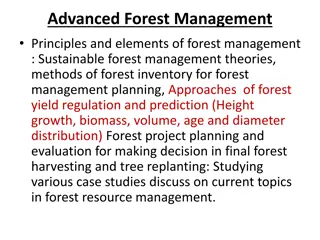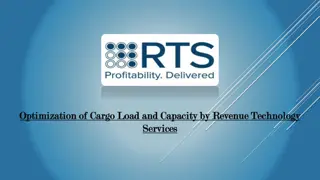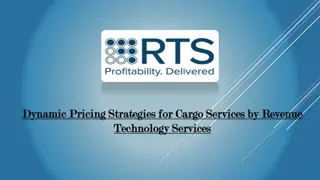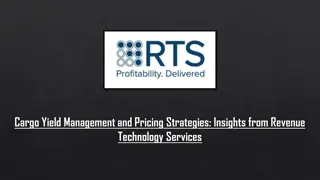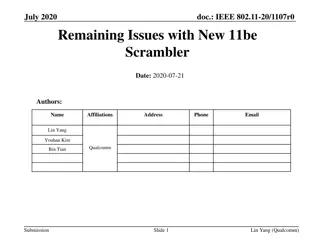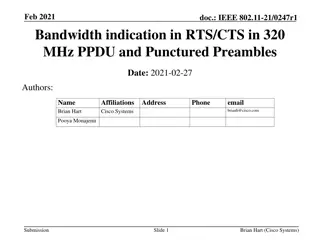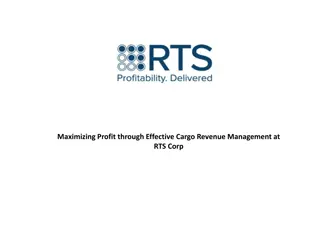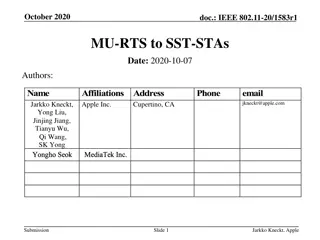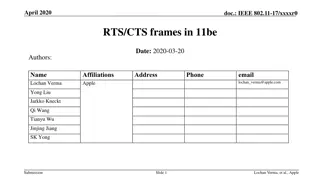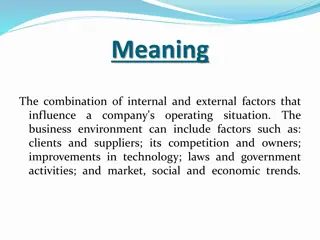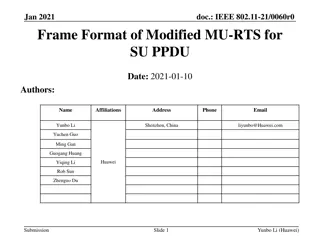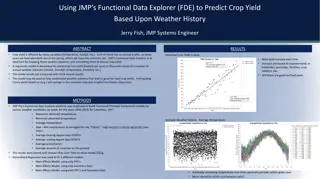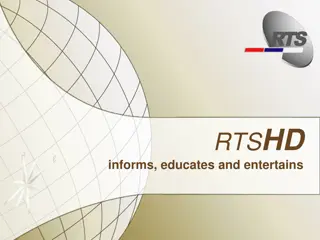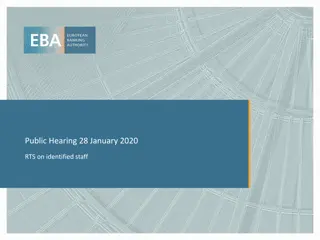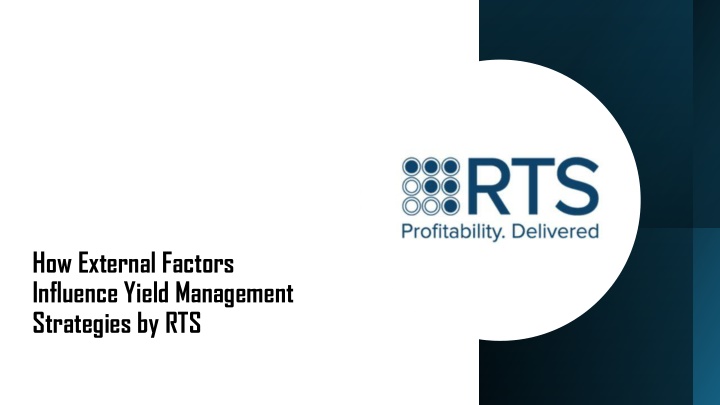
How External Factors Influence Yield Management Strategies by RTS
In the highly competitive airline industry, airline yield management plays a crucial role in optimizing revenue by strategically adjusting ticket prices based on demand, competition, and other external influences. However, market fluctuations and unf
Download Presentation

Please find below an Image/Link to download the presentation.
The content on the website is provided AS IS for your information and personal use only. It may not be sold, licensed, or shared on other websites without obtaining consent from the author. If you encounter any issues during the download, it is possible that the publisher has removed the file from their server.
You are allowed to download the files provided on this website for personal or commercial use, subject to the condition that they are used lawfully. All files are the property of their respective owners.
The content on the website is provided AS IS for your information and personal use only. It may not be sold, licensed, or shared on other websites without obtaining consent from the author.
E N D
Presentation Transcript
How External Factors Influence Yield Management Strategies by RTS
Introduction In the highly competitive airline industry, airline yield management plays a crucial role in optimizing revenue by strategically adjusting ticket prices based on demand, competition, and other external influences. However, market fluctuations and unforeseen global events significantly impact revenue strategies, making adaptability essential for airlines. Revenue Technology Services (RTS) specializes in providing innovative solutions to help airlines navigate these challenges and maximize profitability. Key External Factors Affecting Airline Yield Management 1. Economic Conditions: The global economy directly affects consumer spending power and travel demand. During economic downturns, airlines experience reduced passenger numbers, forcing them to lower fares and offer promotions to maintain occupancy. Conversely, economic booms lead to higher disposable income, increasing demand for premium travel options and enabling airlines to implement dynamic pricing strategies for maximum revenue. 2. Fuel Prices and Operational Costs: Fluctuations in fuel prices have a direct impact on airline ticket pricing and profit margins. A rise in fuel costs forces airlines to adjust pricing strategies, sometimes increasing fares or implementing fuel surcharges. Conversely, when fuel prices drop, airlines may offer discounts to stimulate demand while maintaining profitability. 3. Geopolitical Events and Global Crises: Political instability, trade restrictions, or pandemics can drastically alter airline yield management strategies. For instance, the COVID-19 pandemic led to unprecedented travel restrictions, forcing airlines to adopt flexible pricing and refund policies. Similarly, geopolitical conflicts can disrupt flight routes, increasing operational costs and reducing demand in affected regions.
4. Seasonality and Travel Trends: Seasonal demand fluctuations influence pricing strategies in airline yield management. Airlines leverage data analytics to predict peak travel periods (such as summer vacations and holidays) and adjust fares accordingly. Additionally, emerging travel trends, such as increased demand for sustainable travel, may shift pricing strategies to reflect eco-friendly options. 5. Technological Advancements: The rise of artificial intelligence (AI) and big data analytics has transformed airline yield management. Advanced algorithms help airlines forecast demand more accurately, enabling real- time price adjustments based on competitor pricing, customer behavior, and historical data. RTS plays a key role in integrating such technology into revenue management systems, ensuring airlines stay ahead of market changes. Adapting to Market Changes with RTS RTS offers cutting-edge airline revenue management solutions that help airlines optimize yield despite external uncertainties. By leveraging machine learning and predictive analytics, RTS assists airlines in making data-driven decisions, ensuring competitive pricing strategies that balance demand and profitability. Conclusion External factors such as economic conditions, fuel prices, geopolitical events, and technological advancements continuously shape airline yield management strategies. To remain competitive, airlines must embrace adaptive pricing models and utilize intelligent revenue management solutions. With expert guidance from RTS, airlines can effectively respond to market changes and maximize revenue potential.



